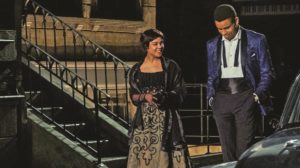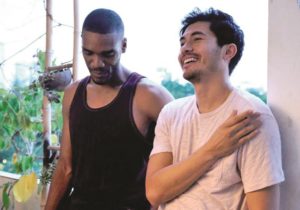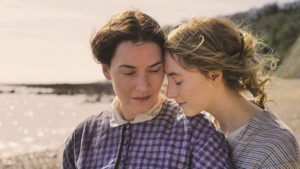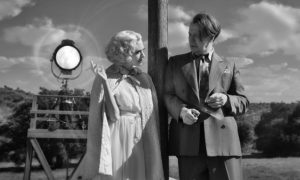Watching the superhero movie Wonder Woman 1984 in my living room was a decidedly underwhelming experience. It has big-budget action set pieces and a surfeit of CGI magic, but they simply don’t have the same impact on the small screen.
With an anticlimactic release during Covid on Christmas Day, simultaneously in theaters and on the HBO Max channel online (subscriptions cost $14.99 a month), which is how I saw it, WW84 didn’t generate much enthusiasm from critics (Manohla Dargis, in the New York Times, called it “a mess of goofy jokes, storytelling clichés and dubious politics”) or the public. The box office was disappointing even in China.

This is compared to the general fanfare the original 2017 Wonder Woman feature received, welcoming a strong female superhero in a solidly conceived DC Comics franchise. The Israeli actress Gal Gadot was an imposing and riveting star, and Patty Jenkins, one of the few women directing comic-book mega-productions, did an admirable job. They both have returned for the sequel.
Though the storytelling in WW84 is indeed clunky, and the villainy not nearly as compelling as it ought to be, the movie is far from awful. The romance at its core — between Gadot’s Diana Prince and her lover of the first film, Steve Trevor (Chris Pine), a World War I pilot and spy who died and is magically reincarnated for this second outing, taking place some 70 years later — deepens the characters. The female friendship on the sidelines, between Gadot and Kristen Wiig, who plays Barbara Ann Minerva, an awkward archaeologist who morphs into the villain Cheetah, is likewise interesting, though neither of these relationships does much for feminist politics.
The plot, briefly: Diana, a.k.a. Wonder Woman, is an immortal demigod, the daughter of Zeus and the leader of an all-female world of Amazon warriors. By 1984, she lives in Washington, D.C., works at the Smithsonian, and secretly performs superhero good deeds in costume, much like Superman. Her nemesis is a failed, lying businessman, Max Lord (Pedro Pascal), who steals an ancient gem with genie-like powers to grant wishes — at a cost. His rise to power nearly destroys the world.
Watching this in 2021, amid Covid and the Trump debacle, certainly has resonance. Seeing Diana resist emotional connection in order to maintain her godlike power and destiny (à la Superman, Spider-Man, et al.), and Pine, as Steve, play the supportive “girl” role, is still equalizing. All in all, WW84 is a diverting way to spend 151 minutes during the pandemic.

In a similar vein of turning old-fashioned romance on its head are two movies available for screening online. One, Your Name Engraved Herein, is a wistful Taiwanese gay male love story on Netflix (free to subscribers), directed by Kuang-Hui Liu. It’s set in 1987, in a militaristic, Christian all-boys prep school, in which the serious and tormented A-han (Edward Chen) becomes smitten with a classmate, the boyishly wild oddball Birdy (Jing-Hua Tseng), nicknamed after the American novel and movie.
The two boys are masculine, athletic, and rebellious — not stereotypically queer — and their friendship is gentle and sweet, though the sexual attraction between them is thwarted and debilitating. Taiwan, in 1987, is awakening from martial law and Kuomintang dictatorship, and the cultural and democratic reforms that led it to become the first Asian country to legalize same-sex marriage in 2019 are still unimaginable to A-han and Birdy. They remain closeted, and when girls are enrolled in the school during their senior year, and Birdy starts to date one, A-han’s jealousy explodes.
The film, however, never feels terminally repressive. It’s an old-fashioned story of first love and romantic pain told from a contemporary point of view. In fact, there’s a lengthy denouement in the present, when the two men (played by older actors) meet again after being apart for decades. It puts the passions and traumas of the past in perspective, and gives the film, which is terrifically performed but very straightforward in its approach, an interesting twist.
The basis of romance is that it bridges the barriers of an impossible attraction, often the cause of tears. That’s Sylvie’s Love, which premiered at Sundance last January and is now free online for Amazon Prime members, in a nutshell. This beautifully wrought African-American love story, set in Harlem in the late 1950s and early ’60s, gives glossy, Hollywood melodrama of that era a very sane racial update.
It’s like a Douglas Sirk pastiche by Todd Haynes without the social bitterness. Writer-director Eugene Ashe focuses on the concerns of his two leads, Sylvie (Tessa Thompson), the middle-class daughter of a record-store owner, and Robert (former NFL star Nnamdi Asomugha), a jazz musician. Civil rights are merely a background detail; poverty, crime, and drugs are invisible.

Sylvie is engaged to a wealthy young black man she met at a debutante ball, but she is irresistibly attracted to Robert, who takes a job at the record store. The love is mutual, but Robert can’t fit into her respectable future. They split, and meet again years later, with Sylvie married and working in television and Robert a successful jazz saxophonist. Their love is rekindled, then things fall apart. And then, improbably, they meet again.
The complications are many, and though somewhat predictable, worthy of discovery. The world of socially striving people of color is lovingly shot, in nicely underlit, saturated hues by Declan Quinn. The period production is sure-footed and the performances persuasive, all of it adorned with a touch of cornball unreality — especially when it comes to show business — that black characters of that era onscreen were never allowed to share. Sylvie’s Love won’t wrench your soul with its passion, but it’s a lovely film, and an impressive one.



